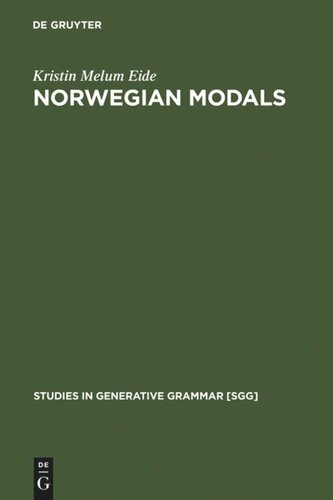

Most ebook files are in PDF format, so you can easily read them using various software such as Foxit Reader or directly on the Google Chrome browser.
Some ebook files are released by publishers in other formats such as .awz, .mobi, .epub, .fb2, etc. You may need to install specific software to read these formats on mobile/PC, such as Calibre.
Please read the tutorial at this link: https://ebookbell.com/faq
We offer FREE conversion to the popular formats you request; however, this may take some time. Therefore, right after payment, please email us, and we will try to provide the service as quickly as possible.
For some exceptional file formats or broken links (if any), please refrain from opening any disputes. Instead, email us first, and we will try to assist within a maximum of 6 hours.
EbookBell Team

5.0
48 reviewsNorwegian Modals is a detailed description of the syntactic and semantic properties of modals in Norwegian. Modal verbs in Mainland Scandinavian languages have received much less attention than their English and German counterparts, hence this book seizes the opportunity to present a range of new data and generalizations relevant for the study of Scandinavian languages, but also for the study of modality in Germanic and other languages. The book critically evaluates a range of proposals from the modality literature, focusing on the Theta-properties and the scopal properties of Modals in Germanic languages, and concludes that none of these previous proposals are able to account for the syntax of modals in Norwegian. The Theta-properties of modals are shown to depend on the construction in which the modal occurs, hence neither a raising analysis, a control analysis, nor a raising-versus-control analysis in fact suffices to exhaust these properties of Norwegian modals. The interplay of modals with tense and aspect is likewise thoroughly investigated, presenting a range of data revealing that existing universalist proposals are insufficient to account for even quite regular patterns. Instead, a new analysis is presented, building on a new compositional tense system which exploits aspectual features of predicates and selectional preferences of modal classes.